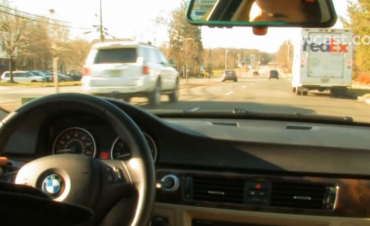How to Avoid a Rear-End Collision

Rear-end collisions make up nearly 30% of accidents in the U.S., studies have shown. In 2012 alone, there were more than $1.7 million rear-end collisions on U.S. highways, which caused 500,000 injuries and more than 1,700 deaths, according to the National Transportation Safety Board.
Today's advanced technologies like forward collision detection and automatic collision avoidance braking can help reduce the risk. However, every commercial driver should be reminded of best practices for avoiding a rear-end collision. Experts offer the following advice:
Check Brakes, Tires, and Suspension
Your vehicle needs all three in good working shape in order to stop properly, so check these key systems at least one a year. Fleet policies may require more frequent checks.
Look Ahead
While it sounds obvious, many drivers fail to look far ahead down the road. This gives you visual cues to anticipate traffic slow-downs and stops as well as watch for brake lights.
Watch Traffic From Behind
To avoid getting rear-ended, be aware of how close vehicles are behind you. Lose tailgaters by changing lanes.
Keep Pace With Traffic
Traveling too fast or too slow compared with the other vehicles on the road can lead to problems. Instead, maintain a steady pace in keeping with the majority of vehicles.
Leave Enough Following Distance
You want plenty of room around your vehicle in case you need to make a sudden stop. Experts recommend one car length for every 10 miles per hour of speed you're traveling.
Cue Drivers Behind You
Give drivers behind you plenty of notice before you turn, change lanes, or slow down.
Look for Escape Routes
You can't predict when you may need to swerve out of the way, so be aware of your surroundings and determine the best places to move your vehicle if needed.
Stay Out of Other Blind Spots
Make sure your vehicle is always visible to other drivers.
Eliminate Distractions
Eating, fiddling with the radio, and using the cellphone should always be avoided when behind the wheel. Distractions invite accidents.
